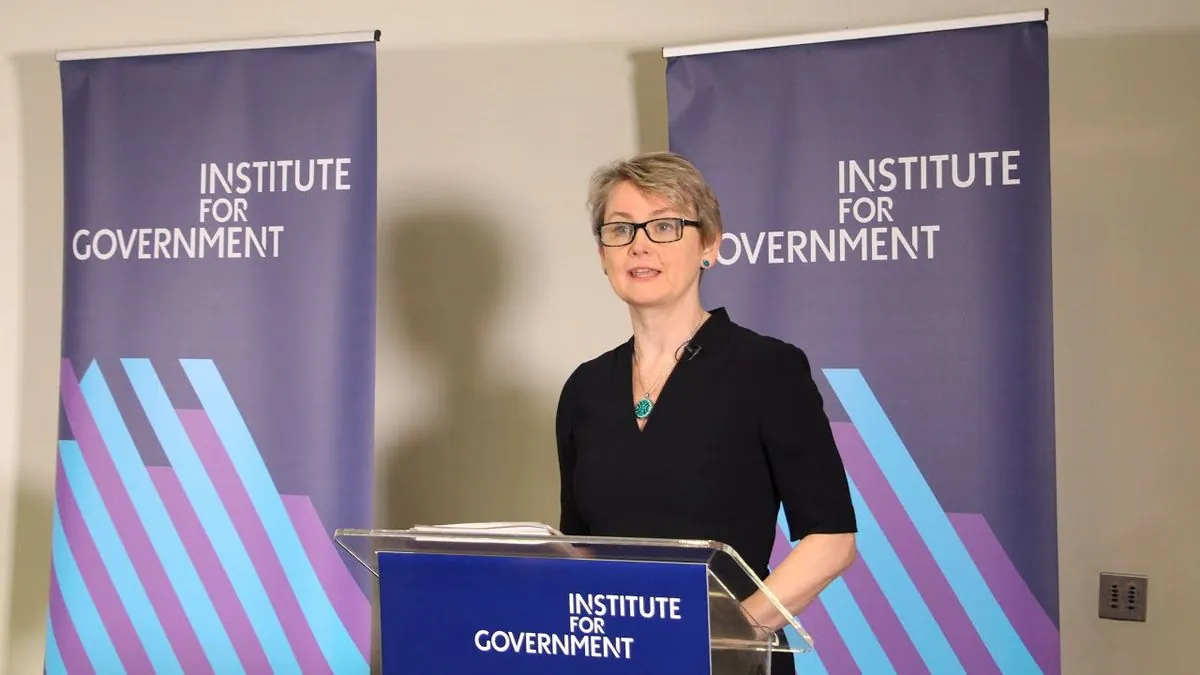UK Home Secretary's Hate-Crime Law Plans Face Legal Challenge
Home Secretary Yvette Cooper's proposal to strengthen hate-crime laws faces opposition from free-speech advocates. The plan aims to address rising anti-Semitic and Islamophobic incidents, but critics warn of potential legal action.

Yvette Cooper, the UK Home Secretary, is encountering legal opposition to her proposed strengthening of hate-crime laws. This initiative aims to address the surge in anti-Semitic and Islamophobic incidents following the Hamas attack on Israel on October 7, 2023.
The Free Speech Union, a UK-based organization advocating for freedom of expression, has cautioned Cooper about potential legal action if she reverses the previous government's decision to modify rules on recording hate speech that falls short of criminality. This situation highlights the ongoing tension between protecting vulnerable communities and preserving free speech rights.

The Home Office, the ministerial department responsible for security and law and order in the UK, has stated that incident recording would only occur when "proportionate and necessary" to safeguard Jewish and Muslim individuals and communities from abusive behavior. They emphasized the importance of maintaining the "fundamental right" to free expression.
This proposed change would alter the approach implemented by former Home Secretary Suella Braverman in 2023. Braverman's code of practice instructed police forces to cease recording incidents solely based on someone taking offense, addressing concerns about potential limitations on freedom of expression.
"We put you on notice that if you do withdraw or alter the code of practice, and as a result the College of Policing, at your insistence, replaces its authorised professional practice with operational guidance that is once again unlawful, we will take legal action to force you and the College of Policing to comply with the law."
The debate surrounding non-crime hate incidents has been ongoing, with notable cases influencing policy. In 2021, Harry Miller, a retired police officer, successfully challenged the College of Policing's hate-crime operational guidance in court. The Court of Appeal, the second-highest court in England and Wales, ruled that the guidance unlawfully breached Miller's human rights and could have a "chilling effect on public debate."
Critics argue that recording non-crime hate incidents may infringe on Article 10 of the European Convention on Human Rights, which protects freedom of expression. The Human Rights Act 1998, which incorporates this convention into UK law, plays a crucial role in this debate.
The situation reflects the complex balance between addressing genuine concerns about hate-motivated behavior and maintaining open discourse. As the UK grapples with these issues, the outcome of this potential legal challenge could have significant implications for how hate incidents are recorded and addressed in the future.


































